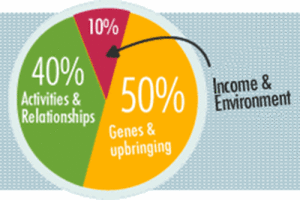
“A sure way to lose happiness, I found is to want it at the expense of everything else”
Bette Davis (1908-1989)
I have to wonder where this wisdom of iconic American actress, Bette Davis, came from. A New Englander born in Lowell, MA, she was a film, TV and theater star referred to as the “First Lady of the American Screen”. She was brilliantly gifted, acted in over 100 films, was nominated for 11 Oscars and won 2 of them, had a 6-decade long career and was once the highest-paid woman in the United States. She was a liberated woman in an industry dominated by men.
But her life is reportedly equally full of darkness. Married 4 times and living through domestic violence and alcoholism surely profoundly impacted her in ways that I suspect fed her wisdom.
We all think about happiness. Often. Isn’t it one of our American rights – the pursuit of happiness? There has been research studies and polls done on happiness. The 2015 World Happiness Report indicated that Switzerland is the happiest country in the world. Of course being research-trained, I want to know how happiness was defined. Interestingly, a Harvard University study that began in 1938 did just that. It is the longest and one of the most comprehensive studies ever published and revels the secret to happiness. It followed (for 75 years) over 250 graduating men throughout their lives, collecting various information about their well-being. The results were universal and irrefutable.
Drum roll………
Happiness was NOT how much money they made, how long they stayed married, what kind of cars they drove, how big their house was, or how well traveled they were. Instead, it reported that the secret to living a happy life is strong relationships. One of the study’s directors, psychiatrist George Vaillant, indicated that the data revealed two pillars of happiness: 1) Love and 2) Finding a way to cope with life that embraces love and does not push it away. “Joy is connection” Valliant says. “The more places in one’s life where connections can be made, the better.”
Hmmm……it makes sense but seems so trite and anti-American, in our quest for homes and furnishings and cars, lucrative jobs, and living the dream. Though we always say that life is about more than money and power, I’m unsure of how many of us stay conscious of this in our daily lives. The Action for Happiness group notes on their website, International Day of Happiness that “social isolation is as potent a cause of early death as smoking; and the epidemic of loneliness is twice as deadly as obesity.” Our relationships are really all that matter in the end.
It’s worth noting, though, that money and its success do matter to happiness to a degree. A 2010 Princeton University study found that income up to a specific amount mattered and was associated with the greatest degree of happiness. The magic income? $75,000 a year. After that, money may buy day-to-day satisfaction, but not happiness. But the Action for Happiness group reports research that indicates that our happiness is not set in stone. Their website reports that 2nd to genetics and our upbringing (which both influence how we behave), our activities and relationships affect 40% of our happiness. We could change the happiness level in a day if we all reached out and made at least one positive connection.
As a mental and behavioral health clinicians at Spurwink, we act as a cushion, a sounding board, a haven for individuals to explore their emotional pain. We help people consider different views of a situation. From a mental health perspective, happiness is wholly self-determined (i.e., it’s all about perspective). Mental health clinicians understand completely that what makes someone happy, makes someone happy. Period. Interestingly, the 75-year Harvard study also found that one’s ability to make lemonade out of lemons – or respond positively to challenges – has a significant effect on social support.
So there it is. If up to 40% of our happiness is due to our daily activities and the conscious choices we make, then we really can impact our own (and others’ happiness). Psychologist Carl Rogers said, “The good life is a process, not a state of being. It is a direction, not a destination.”
What would happen if we were aware of love and loving relationships every day? I recall driving hurriedly to work one morning only to be slowed by a school bus picking up elementary school children. Grumbling and impatiently waiting, I watched the bus driver begin to clap his hands and sing as cute, little children climbed on the bus. The kids on the bus were all singing too. Gulp. A simple reminder of what’s important in life. It’s nice to have some choice over something that can affect us so deeply.
I think Bette Davis learned the hard way what happiness is. And I’ll bet, if asked, our grandparents will tell us not to look for happiness itself.
So how happy are you? What would happen if we all recognized the small grains of everyday generosity – like the guy at the other stop sign who waves us on to cross first. Or the grateful speaker voice, “Thank you for choosing Starbucks. What can I get you this morning….?” (kidding on this one). And what about that Pharrell Williams song, Happy, that topped the charts as the best-selling song in 2014 – #1 in the U.S., U.K., Canada, Ireland, new Zealand and 19 other countries? You can’t watch that video and not smile. It is something to dance about. With lemonade.
—
Spurwink Services
by Linda S. Butler, Ph.D., LCSW
Director of Research & Outcomes

